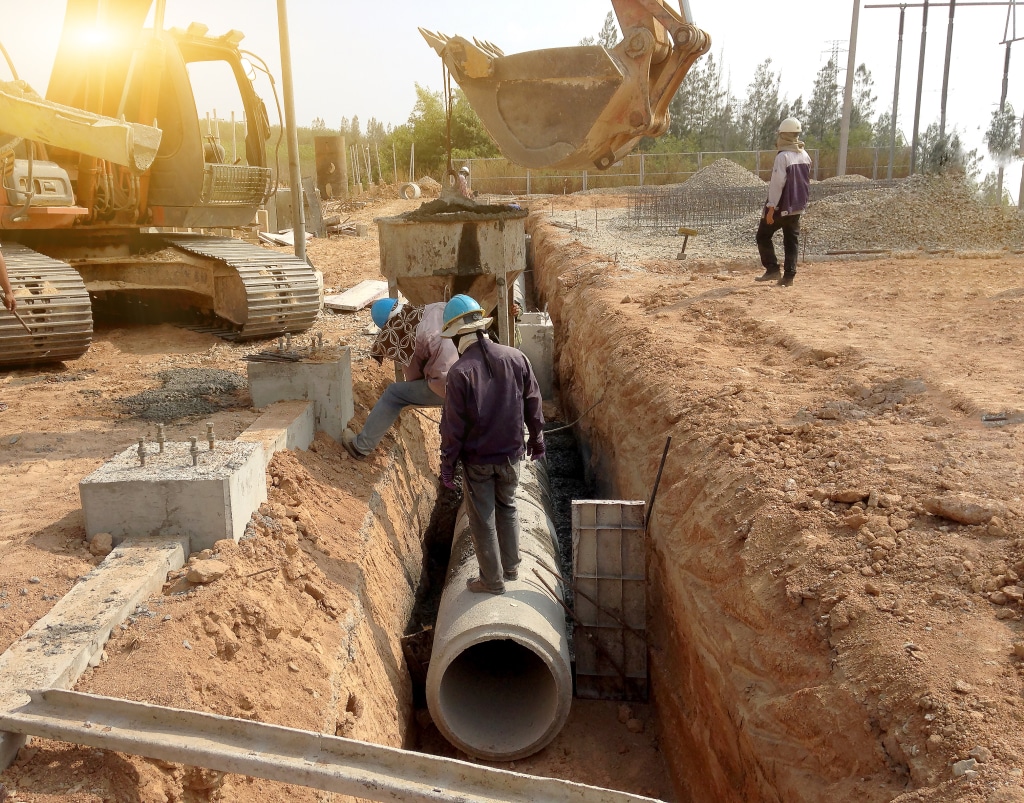After the deadly floods it experienced in 2018, the Ivorian economic capital Abidjan wants to change its face. In achieving this ambition, the authorities of Ivory Coast have initiated sanitation and drainage works aimed at reducing flooding that mainly hit the municipalities Cocody, Adjamé, Attécoubé, Abobo, Bingerville, Marcory and Koumassi.
As part of the master plan for sanitation and drainage (SDAD) resulting from the Sanitation and Improvement of the Living Environment of the Autonomous District of Abidjan Project (PAACA), the government has already mobilized 738 billion CFA francs (about 1.2 billion euros) from donors. The objective is to improve the living environment of the population by reducing pollution of water bodies by wastewater and rainwater drainage.
Read also-
According to the African Development Bank (AfDB), which is financing the project to the tune of 48 million euros, the work underway will benefit 3.5 million people, including 850,000 directly.
According to the Ivorian Minister of Sanitation, Anne Désiré Ouloto, the work underway involves the rehabilitation and extension of 82.15 kilometers of wastewater networks in the northern and southern areas of Abidjan, and the construction of 16.15 kilometers of rainwater drainage channels. The project will also enable the development of a public garden and the rehabilitation of three health centers connected to the drinking water network.
First phase delivered
As part of the implementation of the rainwater drainage system in Abidjan, 31.6 kilometers of pipes have already been completed in Cocody (3.5 km) and Yopougon (27.1 km) in 2021, with an investment of 55 billion CFA francs (just under 80 million euros). At the same time, the sewage network will also be strengthened in the sub-neighborhoods of Adama Sanogo and Anador-university, Nangui Abrogoua in the council of Abobo, Angré star and II-Plateaux in the council of Cocody and Bracodi in the council of Adjamé.
In terms of sanitation infrastructure, the Gourou Integrated Watershed Management project is already operational in the Abidjan councils of Abobo, Adjamé, Cocody and Plateau. Its implementation, estimated at 245 billion CFA francs (i.e. 370 million euros), has enabled better regulation of rainwater drainage and the reduction of flooding in Abidjan.
AfDB technical support
“An important IEC (information, education and communication) component will also be developed to raise awareness among the population on the management of sanitation facilities, hygiene and health and thus bring about a change in behaviour with regard to sanitation and the living environment,” says Laure Akin Olugbade, AfDB Director for West Africa.
According to Osward Chanda, Director of the AfDB’s Water and Sanitation Department, the financial institution is preparing a study on the analysis of vulnerability to hydro-climatic risks in the city of Abidjan. This study, which will take into account the issue of sea level rise, will be coupled with activities to be submitted to the Green Climate Fund (GCF) for initiatives related to solid waste management.
Benoit-Ivan Wansi
